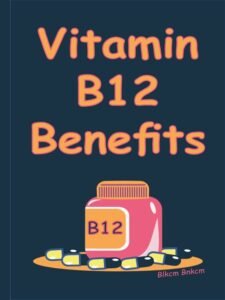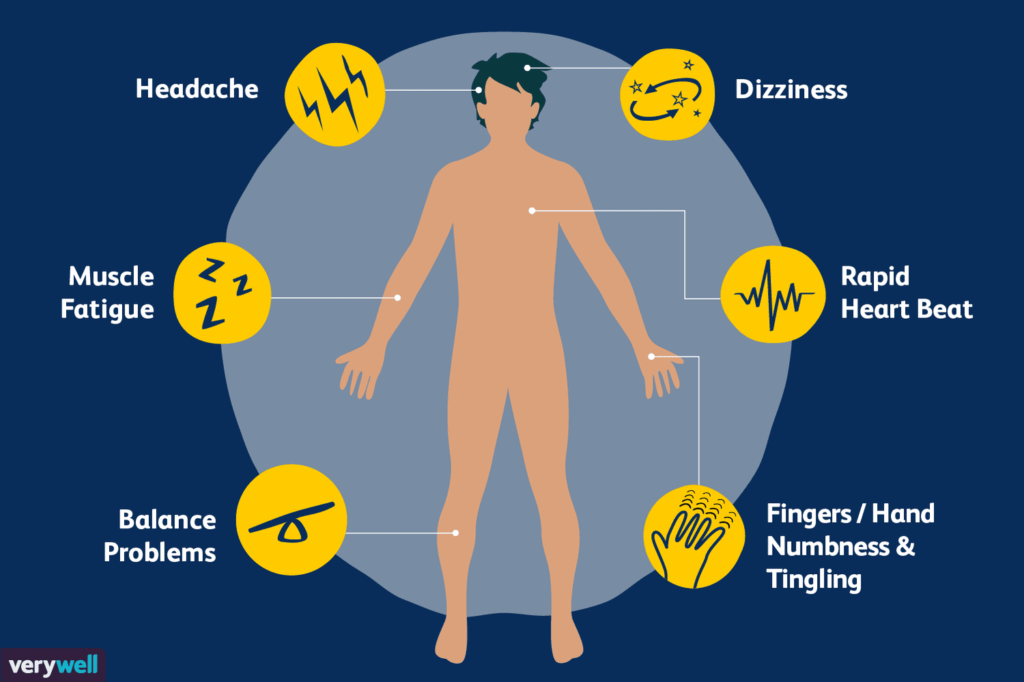Introduction: Wellhealthorganic Vitamin B12
Vitamin B12, a crucial water-soluble vitamin, plays a significant role in maintaining overall health and well-being. Wellhealthorganic provides comprehensive information on vitamin B12, including its benefits, sources, and the impact it can have on your health. This guide explores everything you need to know about vitamin B12, its importance, and how to ensure you get enough of it in your diet.
1. Understanding Vitamin B12
Vitamin B12, also known as cobalamin, is essential for several bodily functions:
- Red Blood Cell Formation: Vitamin B12 is crucial for the production of red blood cells, which carry oxygen throughout the body.
- Nervous System Health: It supports the health of nerve cells and is involved in the synthesis of myelin, a protective sheath around nerves.
- DNA Synthesis: Vitamin B12 plays a role in DNA synthesis and cell division.
- Energy Production: It helps convert food into energy by participating in metabolism.
2. Benefits of Vitamin B12
Adequate vitamin B12 levels are vital for maintaining optimal health. Here’s how it benefits the body:
- Prevents Anemia: Vitamin B12 helps prevent megaloblastic anemia, a condition characterized by large, immature red blood cells.
- Supports Brain Health: It is essential for cognitive function and may help reduce the risk of neurodegenerative diseases.
- Boosts Mood and Energy: Adequate levels of B12 can improve mood and reduce symptoms of fatigue and weakness.
- Promotes Heart Health: It helps reduce homocysteine levels, which can lower the risk of cardiovascular diseases.
3. Sources of Vitamin B12
Vitamin B12 is naturally found in various animal-based foods. Key sources include:
- Meat: Beef, pork, and lamb are excellent sources of vitamin B12.
- Poultry: Chicken and turkey provide good amounts of the vitamin.
- Fish and Seafood: Salmon, tuna, and shellfish such as clams are rich in B12.
- Dairy Products: Milk, cheese, and yogurt contain vitamin B12.
- Eggs: Eggs, particularly the yolk, are a good source of B12.
For those following a vegetarian or vegan diet, it can be challenging to get enough vitamin B12 from food alone. Fortified foods and supplements may be necessary:
- Fortified Foods: Some plant-based milks, cereals, and nutritional yeast are fortified with vitamin B12.
- Supplements: Vitamin B12 supplements are available in various forms, including tablets, capsules, and sublingual lozenges.
4. Vitamin B12 Deficiency
Vitamin B12 deficiency can lead to several health issues, including:
- Anemia: Symptoms include fatigue, weakness, and pale skin.
- Neuropathy: Tingling, numbness, or difficulty walking due to nerve damage.
- Cognitive Issues: Memory loss, confusion, or difficulty concentrating.
- Glossitis and Mouth Ulcers: Inflammation of the tongue and mouth sores.
Certain groups are at higher risk of vitamin B12 deficiency, including older adults, vegetarians, vegans, and individuals with gastrointestinal conditions that affect nutrient absorption.
5. Recommended Daily Intake
The recommended daily intake of vitamin B12 varies by age and life stage:
- Infants (0-6 months): 0.4 micrograms
- Children (1-3 years): 0.9 micrograms
- Children (4-8 years): 1.2 micrograms
- Children (9-13 years): 1.8 micrograms
- Teens (14-18 years): 2.4 micrograms
- Adults: 2.4 micrograms
- Pregnant Women: 2.6 micrograms
- Breastfeeding Women: 2.8 micrograms
6. How to Ensure Adequate Vitamin B12 Intake
To maintain optimal levels of vitamin B12, consider the following:
- Balanced Diet: Incorporate a variety of B12-rich foods into your diet, especially if you consume animal products.
- Fortified Foods: Include fortified plant-based products if you follow a vegetarian or vegan diet.
- Supplements: Consult with a healthcare provider about taking vitamin B12 supplements if you are at risk of deficiency.
7. Vitamin B12 and Health Conditions
Certain health conditions can affect vitamin B12 levels and absorption:
- Pernicious Anemia: An autoimmune condition that impairs vitamin B12 absorption in the digestive tract.
- Gastric Bypass Surgery: Can reduce the stomach’s ability to absorb vitamin B12.
- Crohn’s Disease: Inflammation in the intestines may impact B12 absorption.
- Atrophic Gastritis: Reduces stomach acid and can affect B12 absorption.
8. Monitoring and Testing
Regular monitoring of vitamin B12 levels can help detect deficiencies early. Common tests include:
- Serum Vitamin B12 Test: Measures the amount of B12 in the blood.
- Methylmalonic Acid (MMA) Test: Elevated levels may indicate a deficiency.
- Homocysteine Test: High levels can be associated with B12 deficiency.
Importance of Vitamin B12
Vitamin B12 is crucial for several bodily functions, including:
1. Energy Production: It helps convert food into energy, reducing fatigue.
2. Nerve Health: Supports the maintenance of the nervous system, preventing nerve damage.
3. Red Blood Cell Formation: Essential for the production of healthy red blood cells, preventing anemia.
Benefits of WellHealthOrganic Vitamin B12
 WellHealthOrganic Vitamin B12 supplements offer several benefits:
WellHealthOrganic Vitamin B12 supplements offer several benefits:
– Improved Energy Levels: Regular intake can combat tiredness and boost energy.
– Enhanced Brain Function: It may improve memory and reduce the risk of cognitive decline.
– Better Mood Regulation: B12 supports serotonin production, which can enhance mood and reduce symptoms of depression.
Who Needs Vitamin B12?
Certain groups are more at risk of B12 deficiency:
– Vegans and Vegetarians: B12 is mainly found in animal products, making supplements crucial for those on plant-based diets.
– Older Adults: Absorption decreases with age, increasing the risk of deficiency.
– Individuals with Digestive Disorders: Conditions like Crohn’s disease or celiac disease can hinder absorption.
Signs of Vitamin B12 Deficiency

Common symptoms of deficiency include:
– Fatigue and weakness
– Pale or jaundiced skin
– Nerve problems, like tingling or numbness
– Difficulty thinking and memory loss
| Category | Details |
|---|---|
| Product Name | Wellhealthorganic Vitamin B12 |
| Form | Tablets, Capsules, Sublingual Drops |
| Active Ingredient | Methylcobalamin |
| Dosage | 1000 mcg per tablet/capsule/drop |
| Recommended Use | 1 tablet/capsule/drop daily or as directed by a healthcare provider |
| Bioavailability | High, due to the use of Methylcobalamin |
| Suitable For | Vegetarians, Vegans, Older Adults, Athletes |
| Free From | Gluten, Soy, Dairy, Artificial Colors, and Preservatives |
| Certifications | GMP Certified, Third-Party Tested |
| Packaging | Recyclable, BPA-Free Containers |
| Storage Instructions | Store in a cool, dry place, away from direct sunlight |
| Shelf Life | 2 years from the date of manufacture |
| Health Benefits | Energy Boost, Improved Mental Clarity, Red Blood Cell Formation, Neurological Health |
| Potential Side Effects | Rare; may include dizziness, headache, nausea |
| Price Range | $15 – $30 per bottle (60 tablets/capsules/drops) |
| Availability | Online and in select health stores |
| Customer Rating | 4.8/5 based on customer reviews |
| Company Mission | Promote holistic health through high-quality, natural supplements |
| Customer Support | 24/7 support via email and phone |
What is Vitamin B12?

Vitamin B12, also known as cobalamin, is a water-soluble vitamin that plays a pivotal role in the functioning of the brain and nervous system. It’s also essential for the formation of red blood cells and DNA synthesis. Chemically, it contains the mineral cobalt and can be found in several forms, including cyanocobalamin and methylcobalamin.
Benefits of Vitamin B12

Energy Production
One of the primary benefits of Vitamin B12 is its role in energy production. It helps convert carbohydrates into glucose, which your body uses for energy. If you’re feeling fatigued, low B12 levels might be the culprit.
Red Blood Cell Formation
Vitamin B12 is essential for the production of red blood cells. Without adequate B12, red blood cells can become abnormally large and fail to divide properly, leading to anemia.
Neurological Health
Vitamin B12 plays a significant role in maintaining neurological health. It helps in the production of myelin, a protective sheath that covers your nerves. A deficiency can lead to neurological issues, including memory loss and mood changes.
DNA Synthesis
Every cell in your body needs DNA to function properly. Vitamin B12 is crucial for DNA synthesis, ensuring that cells divide correctly and function optimally.
Conclusion
Vitamin B12 is essential for various bodily functions, and maintaining adequate levels is crucial for overall health. Wellhealthorganic emphasizes the importance of incorporating vitamin B12-rich foods into your diet or using supplements if necessary. Staying informed about your vitamin B12 levels and addressing any deficiencies promptly can help ensure optimal health and well-being.
